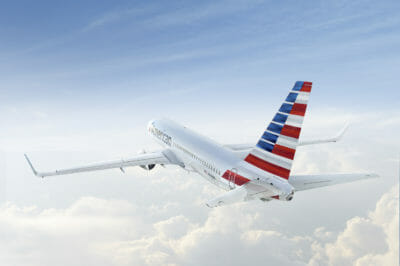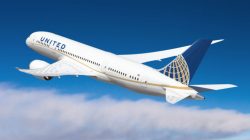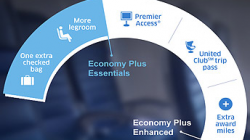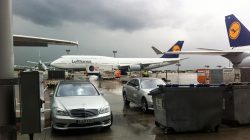I was in New York last year with a day to spare and decided to look for some new travel startups. One of them was Rocketrip, and I had a nice chat with its CEO, Daniel Ruch. The basic concept behind Rocketrip is that it helps companies incentivize their workers to reduce corporate travel expenses. Rocketrip helps determine what a trip should cost and provides a way for employees and business to share the savings if the employee can bring the price down. Looking for options to reduce corporate travel expenses? Why not visit a good site like https://instabus.co.uk/ for some helpful tips and ideas!
If you are well versed in the world of points and miles, this can be highly profitable for you. Imagine that you have been assigned a $2,000 budget for a round-trip ticket from Seattle to New York and three nights’ lodging. What if you can find award space and book yourself a first class ticket with 50,000 miles that you earned cheaply through manufactured spend, and you have a friend with a spare bedroom? Wouldn’t you like to have an extra $1,000 for helping your employer save money?
I spoke to Daniel more recently about the impact of Medallion Qualifying Dollars and Premier Qualifying Dollars now that United and Delta are planning to change to revenue-based programs. Elite status will have a revenue component (miles flown still matter) and award miles will be entirely determined by dollars spent.
These changes create a financial incentive for business travelers to overspend on their flights by delaying purchase until the last possible moment, something recently explored in detail in a recent article on Slate.
Other People’s Money
I didn’t realize just how much an issue it could be until I actually started working for a company and doing business travel of my own. Last week, for example, I took two business trips. Both were planned well in advance. People in my department knew about them, but no one booked travel arrangements until a week before. I ended up paying over $750 for an itinerary that, had it been for vacation, I would never consider paying more than $500 (and $250 would be ideal).
Delta and United may be relying on one of the most difficult problems in economics: getting someone to worry about saving other people’s money. I’m not trying to call out my colleagues for lacking fiduciary responsibility to their employer. There are good reasons for waiting, such as the chance you may need to attend some other event or stay at the office for key meetings. In fact, both of these almost became issues for me.
But this cautiousness can be taken to perverse extremes. If my colleagues were willing to commit to booking their travel a week in advance, why not wait until a day in advance? Why not just by a ticket after arriving at the airport? By paying much, much more for their tickets, they could earn more miles for the same exact trip.
It All Averages Out …or Does It?
Slate’s authors did an analysis of average fares between small and large cities, between two small cities, or between two large cities. When switching from distance-based to cost-based methods for earning miles, the changes could mean more or fewer miles, but on average they balanced out. It suggests to me that United and Delta wouldn’t normally expect to see an increase in revenue if all else remains equal.
It won’t stay equal. They have created a additional incentive for employees to delay booking their travel in order to intentionally buy more expensive tickets that they don’t personally pay for. If I need to leave San Francisco for a meeting in Boston, I can’t just choose a different destination to earn more miles. I probably won’t pick a complicated routing to earn more miles (too busy to waste time on a plane if it’s for work).
About the only thing an employee has control over is when he or she buys the ticket. Waiting until shortly before departure means you can wait for fares to increase.
This isn’t a completely new idea. Some travelers may already be waiting and booking higher fare classes that earn bonus miles or rank higher for upgrade priority. But those are bonuses. Under the new strategy, cheap fares don’t only lose out on bonuses but also earn fewer miles to begin.
I’m not experienced at all as a business traveler, but I imagine there will be pushback if the changes to United and Delta’s loyalty programs cause a significant change in customer behavior. My problem is predicting what that pushback will look like.
Can a company rule out flying on Delta or United?
That would be silly if they actually have the cheapest fare or best route for a given trip at the time of booking, but some companies do have agreements with preferred carriers that could sway business.
Can a company tempt employees to fly a different carrier like American by handing out free status?
Some companies agree to contracts that come with status for some employees. They are often out of reach for smaller businesses and not a new idea, but maybe American and others will feel emboldened to offer these terms. Work with corporate travel management singapore – Plover Trip for hassle-free business trips.
Can a company require that its employees book a certain number of days before departure?
Enforcement would be difficult, as I imagine you could always come up with excuses for delaying. (Just like you can come up with excuses for paying more to fly on a preferred carrier vs. the cheapest fare.)
Rocketrip’s shared-savings model is the only way I can think of to easily attack this problem because it creates a competing incentive: other people’s money has a chance to become your money. An employee must choose between more miles or cash in his pocket. Booking early will probably save a lot more money than those extra miles are worth.
What about those of you who are frequent business travelers? Do you see your travel booking strategies shifting as a result of new revenue-based models for loyalty programs?





